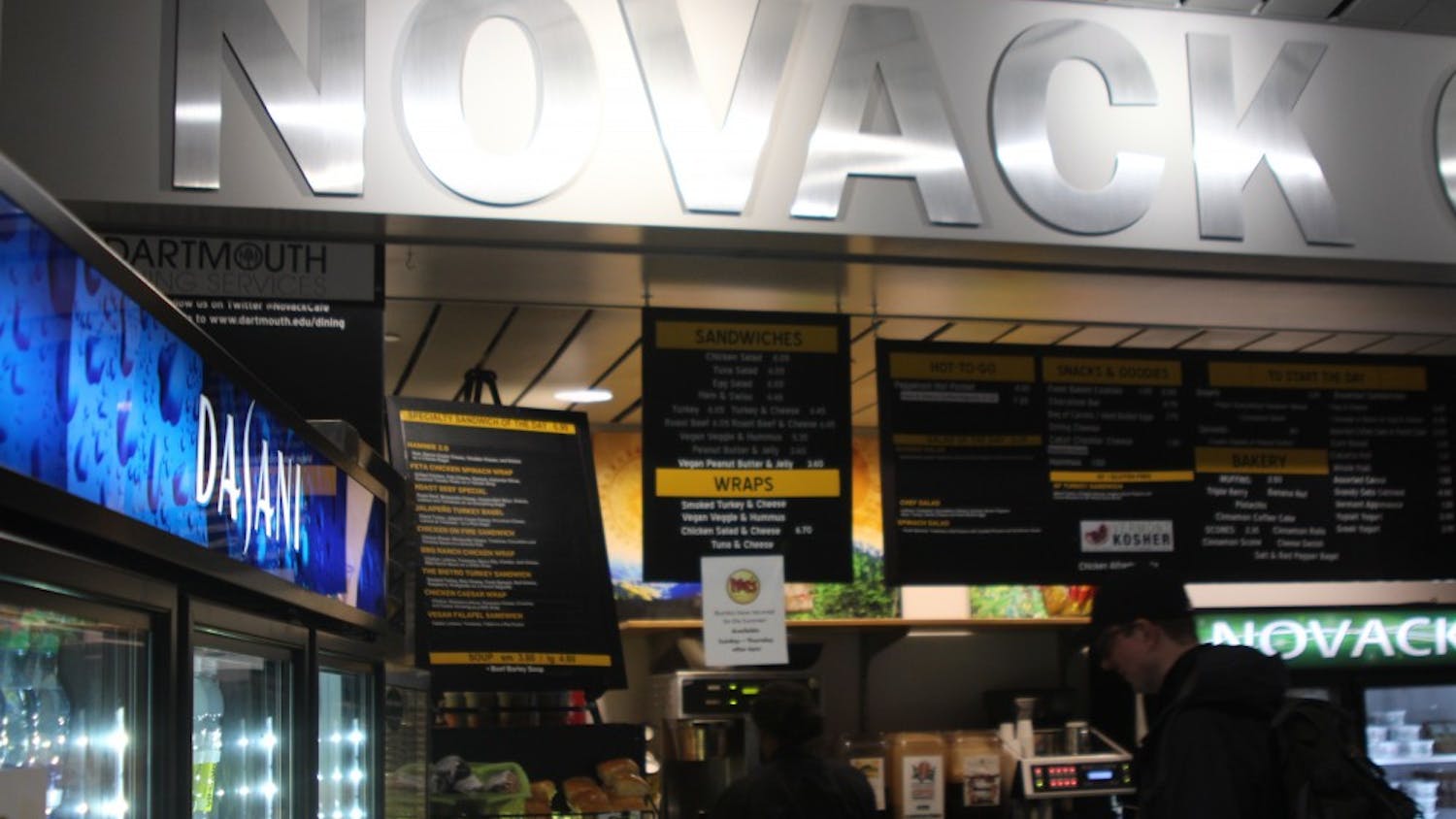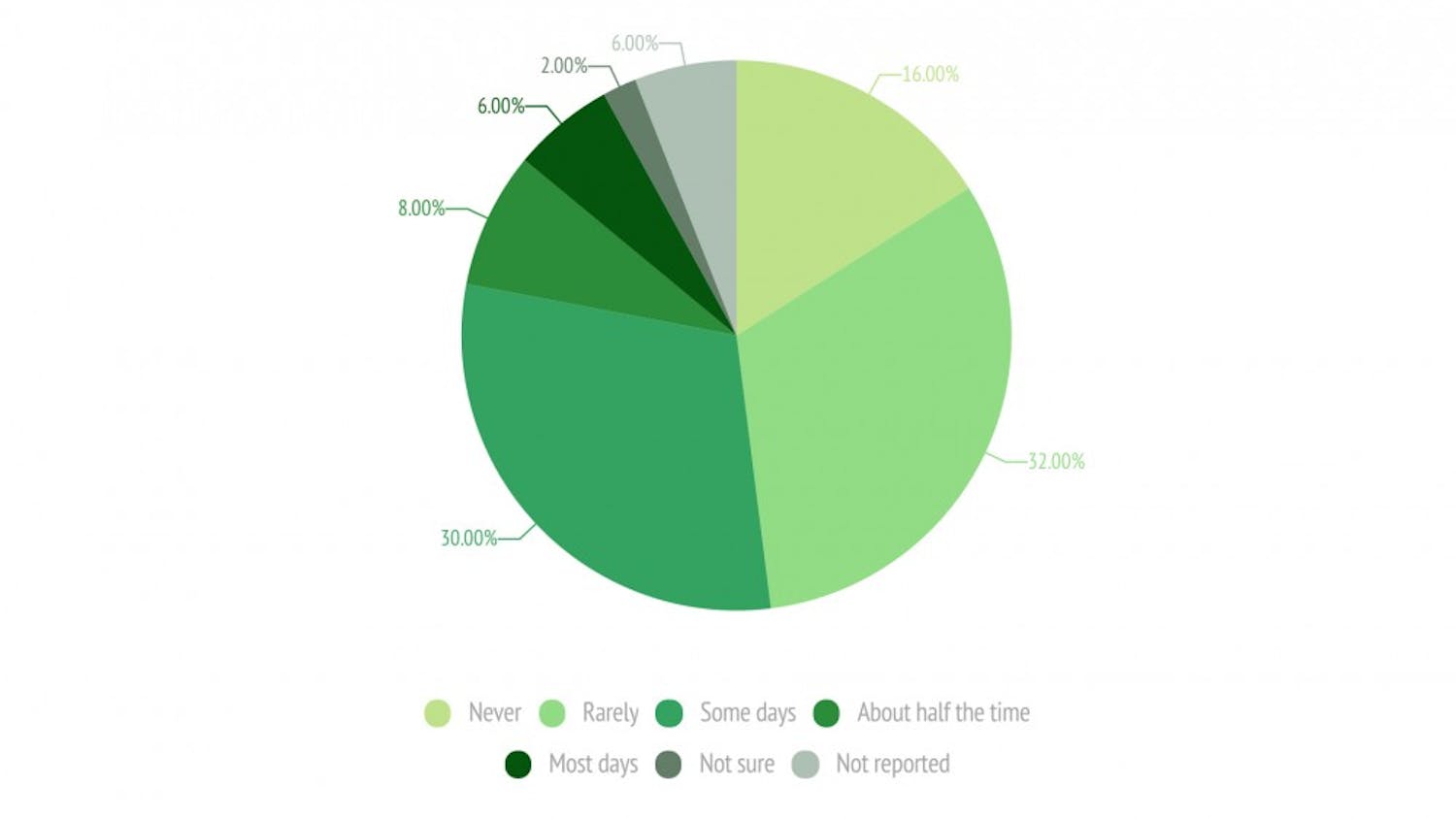I have to start this piece by admitting something: I’m a little relieved commencement won’t be happening this June.
I’m relieved because it means I don’t have to spend the next few months worrying about whether or not my dad and younger siblings can come. If they can afford to come. If I should feel more guilty about not using my personal savings to help them finance the trip.
Not one of my family members has ever stepped foot on Dartmouth’s campus. And before writing this article, I don’t think I’ve ever told that to most of my friends here.
None of my family came for move-in — but I jumped into Trips the second I arrived, so it made sense that my family wouldn’t have wanted to stick around for five days without me. I didn’t have anyone visit for First-Year Family Weekend either, but lots of parents didn’t come — and besides, that just meant I had more freedom to enjoy myself at Pigstick. And no one came for Sophomore Family Weekend in the summer, but by then, most people assumed that if your family didn’t come, they had probably visited some other time in the past two years.
It’s usually easy for me to talk about myself. I’m an open book, and if you want to hear my entire life story — from growing up poor in a household filled with domestic abuse and drug addiction, all the way to landing at an Ivy League school on a full scholarship — I can give it to you with a smile. I’ve actually done just that, sharing my life story with Dartmouth friends, more times than I can count, and it’s a point of pride for me when they inevitably respond with, “I had no idea you went through all that. You always seem so positive.”
I’ve survived a lot, that’s for sure, but I’ve also been given a lot. Dartmouth alone has given me so much: an Ivy League degree without student loans, well-paying jobs that I genuinely enjoy and the chance to spend two terms in Italy on their dime, just to name a few. Sometimes I’ll laughingly agree when my friends complain about the food at Foco, but the truth is, I have no room to talk. Growing up with a fair amount of food insecurity, I know that near-unlimited access to an all-you-can-eat buffet is a dream come true.
I think that’s why it’s so hard for me to talk about the fact that my family has never gotten the chance to visit me on campus. It’s a constant reminder that Dartmouth has given all of these incredible experiences and resources to me — not them.
Often when we talk to first-generation college students, we throw around phrases like “you’re breaking the cycle” and “your family must be so proud of you.” I’m not saying those aren’t true, just that I don’t believe they’re that simple.
Saying I’m breaking the family cycle of not graduating from college is accurate, but it doesn’t consider the fact that I’ve broken a lot of ties, too: I haven’t seen my dad and younger siblings in over a year. Saying my family is proud of me is also accurate, but it doesn’t take into account the fact that I’ve had a strained relationship with most of my family members for as long as I can remember.
I do love my family, and I recognize all the sacrifices they made to get me where I am today, but I also wish I could more easily connect with them. As a result of all the things I’ve been given, by people and institutions including but not limited to Dartmouth, I’ve grown up and developed in a way that has little tolerance for how a lot of my family thinks and acts. But I also know they haven’t been given the same things I have, so I can’t expect them to catch up with me either.
Literally and figuratively, they aren’t able to meet me where I am, and I’m not willing to give it all up and go back.
Don’t get me wrong: I am sad about the postponement of commencement. Who isn’t? I was excited to finally wear a cap and gown, peek around for canes to find out which of my friends were in senior societies and finally get some sense of closure at the end of our four years on campus. I hate goodbyes, to the point where I avoid saying them if at all possible, but I wanted to at least have the option.
But planning for commencement was also a significant stressor in my life, more so than I’d like to admit. While some of my friends were complaining about hotel and restaurant reservations already being impossible to find, I was wondering who I’d have in the audience in the first place. I knew there were two options: either my dad and younger siblings would miraculously find the money to come up, in which case I’d momentarily put aside my complicated feelings toward our relationships to cheerfully show them my home base since my adult life began, or they wouldn’t.
Either way, I wouldn’t know how to feel. So it’s a relief that now, I don’t have to.
I genuinely believe that whatever you feel toward commencement is valid. That includes being upset because you wanted to be rewarded for the years of hard work you’ve put in at this school. That also includes being heartbroken that you won’t be able to bring your family to campus, since your victories also belong to them. And if you’re still mourning the loss of Green Key and one last carefree term of playing pong with your best friends — well, I don’t think you should act on those feelings at the cost of endangering your community, but I think the feelings themselves are perfectly valid. I’d be lying if I said I hadn’t felt that way myself.
I don’t know how many people share my personal feelings toward graduation. As I wrote this piece, I had to keep deleting lines where I apologized for feeling the way I do. In these times, it’s so easy to put your feelings aside at the cost of others, to say, “Other people have it so much worse than I do, so if I should be feeling anything, it’s lucky.” I’ve gone through enough of my own mental health struggles to know that, at least for me, this never works — just as I want everyone else to process what’s going on around them however they need to, I have to give myself permission to do the same. Even if others disagree.
Writing a column that will be immortalized for the entire world to see seems like a good place to start.




